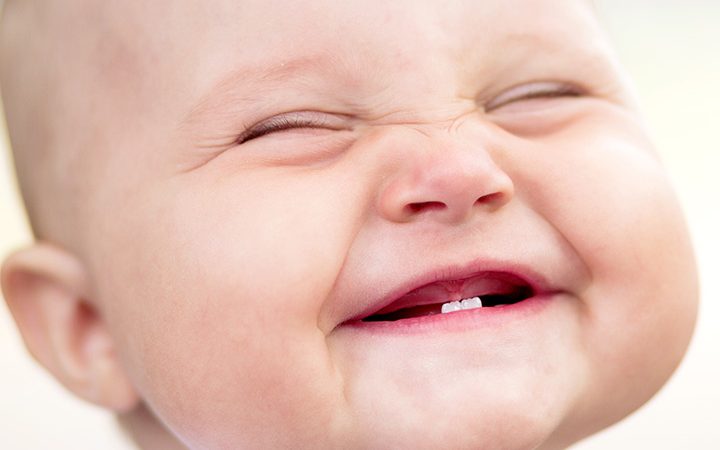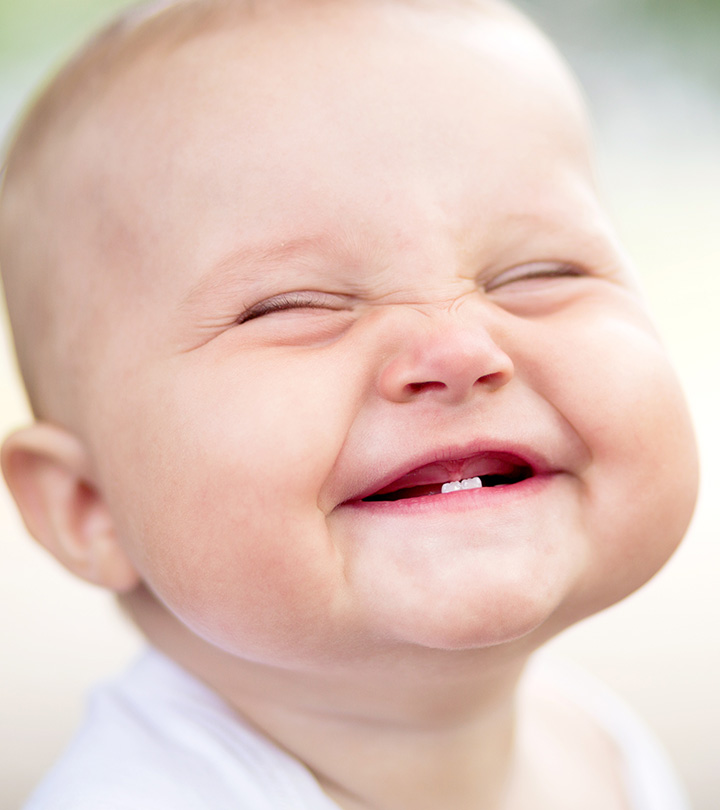Babies start to smile from the time even before they are born. Yes, you read that right. During the 11th week of pregnancy, your baby can smile and make complex facial expressions while still in the womb (1). These smiles, known as reflex smiles, may continue for a few weeks after birth as well. But from when do babies smile after birth?
Read on to know about when babies start to smile, ways in which you may encourage them to smile, and what smiling says about your baby’s development.
When Do Babies Smile?
Babies begin to give a reflex smile from almost when born. Reflex smiles are smiles triggered by certain stimuli or events. You may notice a reflex smile when the baby relieves in the diaper, or you may notice the baby smiling in their sleep (2).
A baby progresses to a social smile at around the age of two months (3) (4). A social smile is a true smile that the baby shows in response to a parent’s voice or smile. By four months of age, babies use social smiles often to engage and gain the attention of those around them (5). It is not uncommon for a four-month-old to spontaneously smile at people around them for interaction.
How To Encourage Your Baby To Smile?
The simple, playful moments you share with your baby are often sufficient to encourage them to smile. You may try the following activities to make your baby smile often.
- Talking to them in baby language
- Smiling at them
- Playing peek-a-boo or making funny animal sounds
- Maintaining eye contact while talking
- Enacting what you speak
- Laughing with them
- Making funny voices or faces
What Does A Baby’s Smile Say About Their Development?
A research study suggests that the grins and smiles of a baby may help understand their emotional and social skills (6). Research notes that babies may smile when they observe certain actions or events they perceive as humorous, even if no one around is smiling. Smiling may suggest healthy cognitive and social development, indicating the baby’s brain can detect humor or develop amusement independent of their parents’ reaction.
It has also been shown that smiling helps release certain hormones in a baby’s body that aid in their brain development and overall development (7). In addition, receiving smiles and giving them back in return may become the stepping stones for your little one to learn how to be social, bond with others, and have good relationships.
What To Do If The Baby Isn’t Smiling?
If your little one is not smiling or showing signs of early grins or changes in facial expression by the end of two months of age, it does not necessarily mean that there is some problem.
The rate at which babies hit various developmental milestones may vary from one baby to another. If your baby does not show any signs of smiling even in their third month, it is advised to consult a pediatrician.
A smiling baby is a sight for sore eyes and an exciting moment for parents. Your baby smiling back at you means that they are acknowledging your presence and expressing their joy of seeing you. It also means that they are starting to become conscious of their emotions. You may try various activities to engage your baby and make them smile often. If you have any concerns about your baby’s achievement of this milestone, do not hesitate to discuss it with a pediatrician.
References:
MomJunction’s articles are written after analyzing the research works of expert authors and institutions. Our references consist of resources established by authorities in their respective fields. You can learn more about the authenticity of the information we present in our editorial policy.
The following two tabs change content below.




































